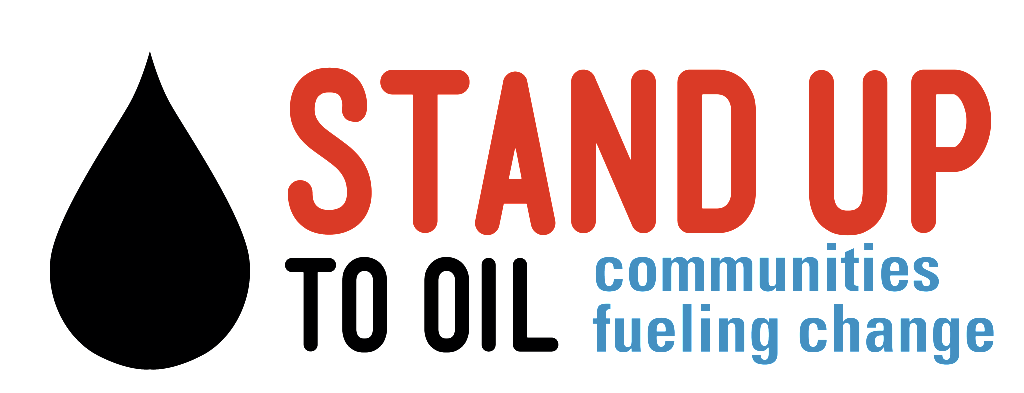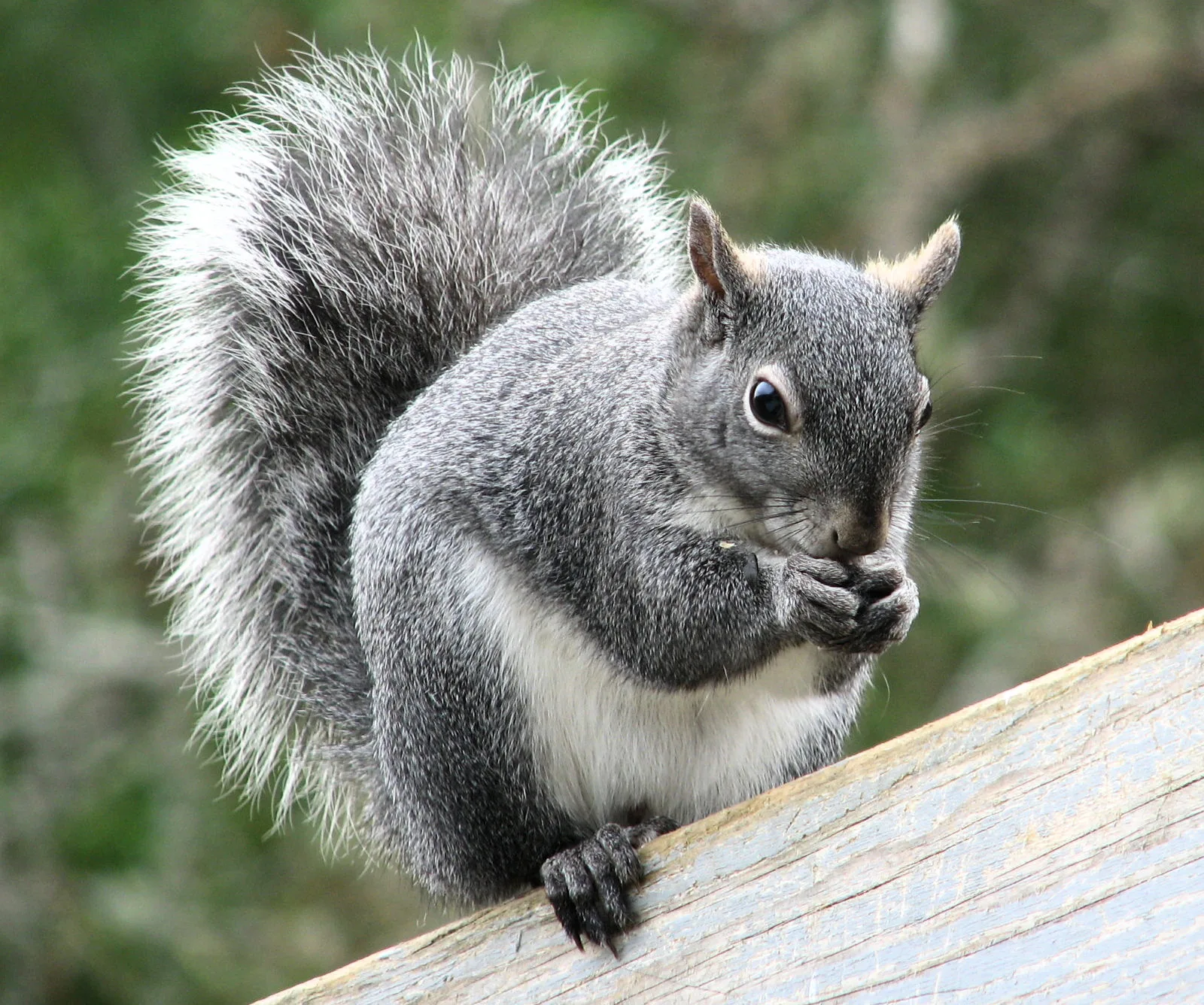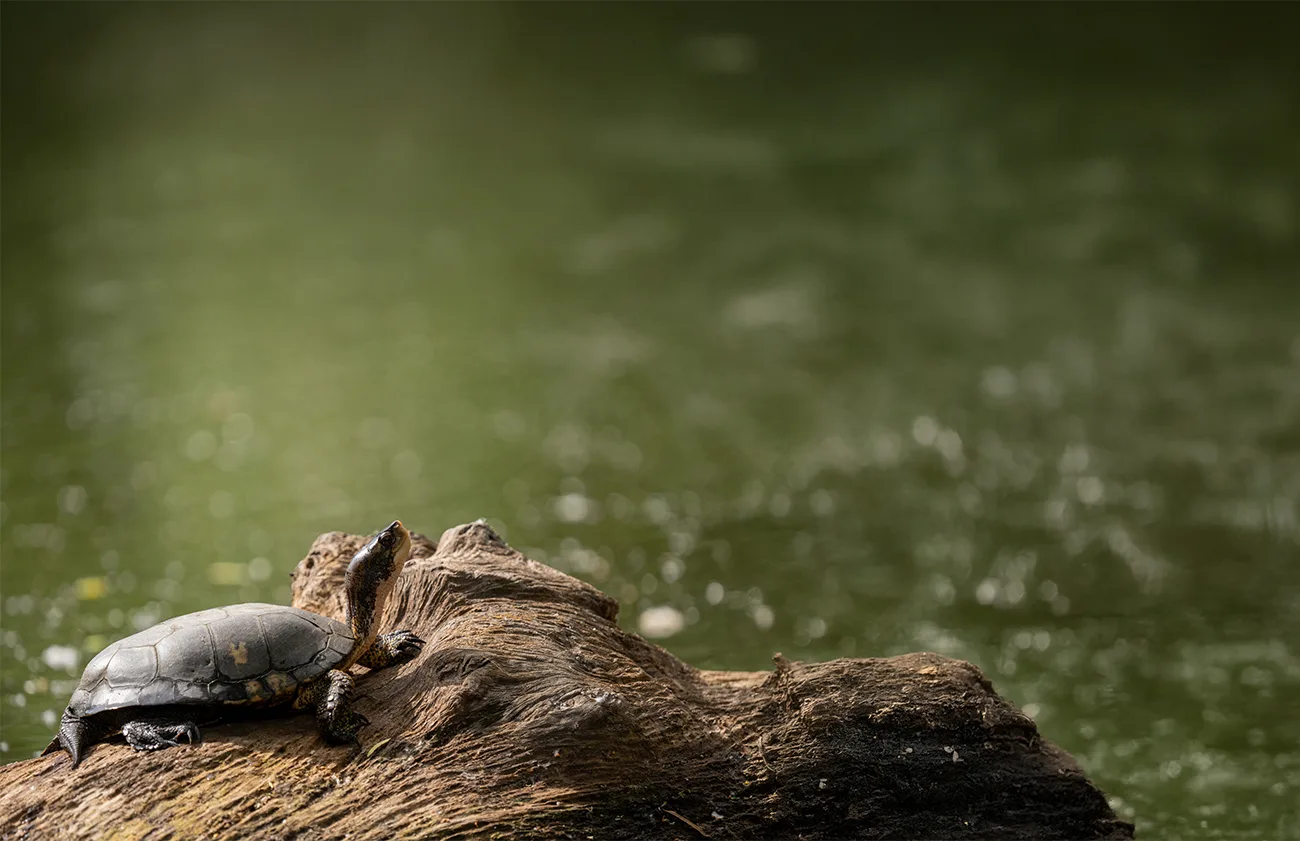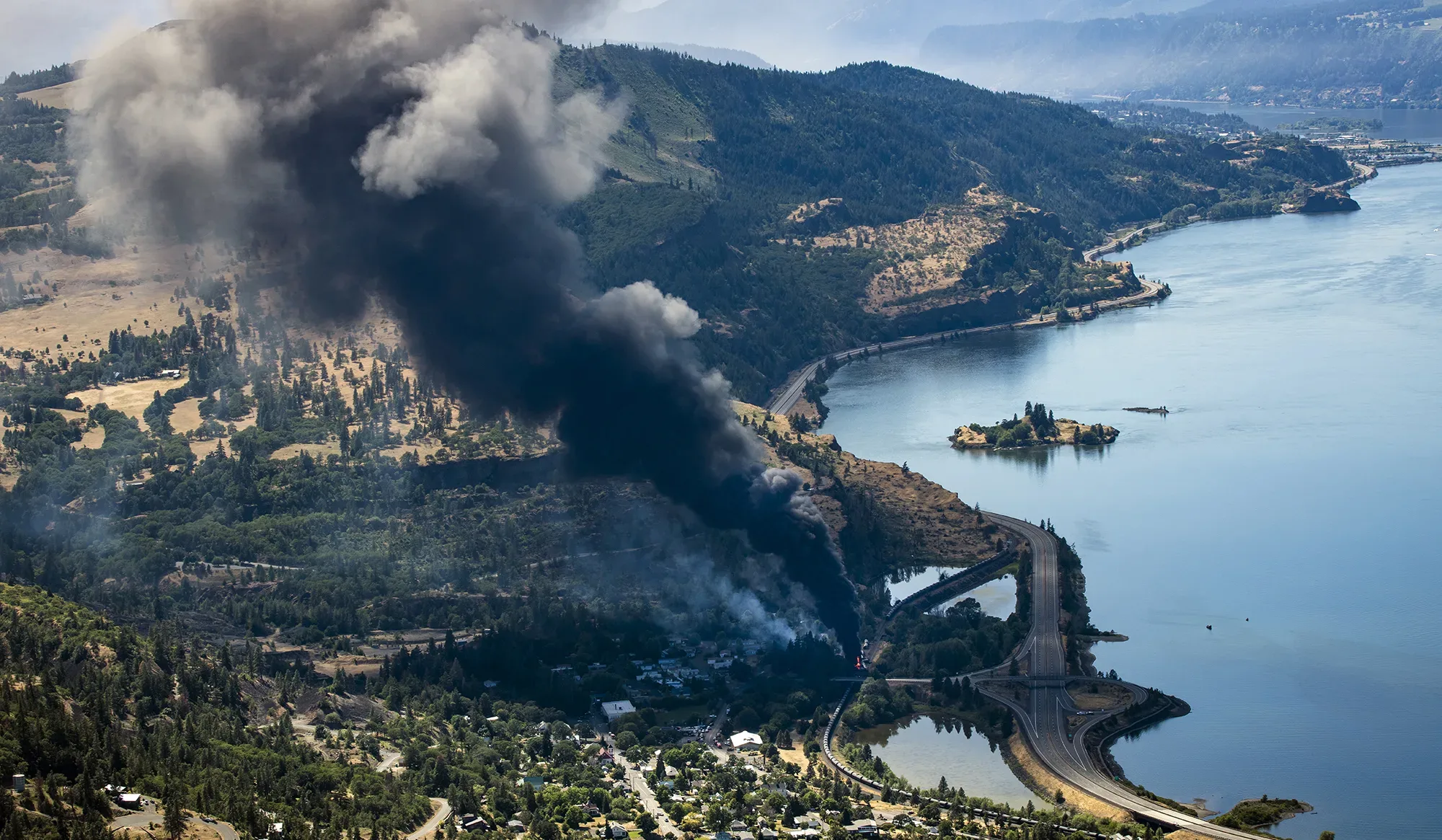The production boom in the Bakken oil fields of North Dakota resulted in an explosion of oil train traffic throughout the United States. Starting in September 2012, oil train traffic in the Columbia Gorge went from zero to a high of 60 million gallons per week.
Multiple proposals to build oil terminals in the Pacific Northwest, including what would have been the nation’s largest oil terminal at the Port of Vancouver, WA, would have resulted in an additional 100-plus oil trains rolling through the Columbia Gorge weekly, posing an unacceptable risk to communities and the environment.
Summer 2019: On June 29, the Oregon Legislature approved a bill (HB 2209) with bipartisan support to better prepare Oregon to respond to oil spills from high-hazard trains that carry millions of gallons of crude oil through the state. The bill passed 56 to 3 in the House on June 17 and was approved 26 to 1 (with one absent, one excused) in the Oregon Senate today. The governor has five days to take action after the enrolled bill is sent to the governor’s office.
HB 2209 will require railroads transporting large amounts of crude oil through Oregon to development spill response plans and submit them to the Department of Environmental Quality (DEQ) for review and approval. The bill also requires a triennial schedule for trainings on spill response, fees assessed to the railroads to pay for spill response and trainings, and for railroads to provide to the DEQ proof of financial ability to pay for oil spill response and cleanup costs.
Spring 2018: All of the new oil terminal proposals in the Northwest have been defeated, thanks to the dedication and commitment of our partners, activists and volunteers. The largest proposal was the Vancouver Energy project located on the banks of the Columbia River at the Port of Vancouver, WA. This crude oil by rail terminal would have been the largest in North America, resulting in 15 million gallons of crude oil per day traveling through the Columbia River Gorge National Scenic Area in dangerous rail cars. Washington Governor Jay Inslee denied the project due to unacceptable risk to public safety and the environment.
Those other proposed terminals included: three in Grays Harbor (Westway, Imperium, and U.S. Development); a proposal from Shell in Anacortes; and a smaller facility in Vancouver called NuStar. Four existing refineries throughout Washington continue to pursue oil export plans, but the main threat of new terminal proposals, particularly the one by Tesoro in Vancouver, have been defeated.
You can view more information on these and other fossil fuel export projects on Sightline’s interactive map: Mapping the Thin Green Line.
On June 3, 2016, an event concerned officials and citizens in the Gorge had feared came to pass: A Union Pacific unit train carrying nearly three million gallons of oil derailed as it passed by the town of Mosier, OR, in the Columbia River Gorge National Scenic Area. Sixteen tanker cars derailed; 42,000 gallons of oil were spilled, fouling Mosier’s sewage system and seeping into the Columbia River. The volatile oil ignited, causing a fire that took 14 hours to extinguish and sending up a plume of smoke that could be seen for many miles around. And this was far from a worst-case scenario: Had the high winds of a typical late spring day in the eastern Columbia Gorge been blowing, a much more catastrophic event would have occurred. The Gorge got very lucky – this time – but the fact remains: Oil by rail is unsafe. Since 2013, several oil train accidents in North America have killed 47 people, spilled millions of gallons of oil into waterways, forced the evacuation of thousands, and caused billions of dollars in property damage and environmental destruction. We cannot allow this in the Columbia Gorge.
With rail lines operating on both sides of the Gorge, the only sea-level route through the Cascade Mountains, the National Scenic Area and its communities face rising chances of a catastrophe as Northwest regulators consider numerous oil train terminal proposals. Anticipating a major increase in fossil fuel trains, both the Burlington Northern Railway and Union Pacific Railroad are proposing major expansions of rail through the Gorge. The construction of new tracks would endanger wetlands, fish and wildlife habitat, cultural resources, recreation and public safety. Double tracks would result in more large trains moving at higher speeds through the National Scenic Area and its communities.
Combined with the pending proposals for coal export in the Northwest, the Columbia River Gorge would be transformed from a National Scenic Area into a fossil fuel pipeline on rails. Oil and coal transport is dirty, dangerous, and disruptive and does not belong in our national scenic treasure, the Columbia River Gorge.
Friends of the Columbia Gorge is a member of the Stand Up to Oil coalition.

Latest News

Appeals court ruling sets stage for protection of western gray squirrel in Washington state

Invasive Predator: Inside the Race to Control the Deadliest Threat to Gorge Turtles


